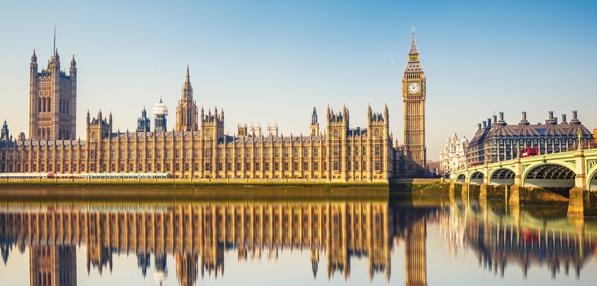
9 minute read
News & campaigns
See page 12 to read about our music education conference Music Education
Ahead of the release of the refreshed National Plan for Music Education (NPME), which is expected in early 2022, we continue to campaign for every child to have access to high quality music education. ISM’s chief executive, Deborah Annetts, has made significant interventions on music education policy and practices in recent months. In October Annetts delivered a keynote address on ‘Supporting Creative Subjects in the School Curriculum’ to the Delivering Excellence in Teaching Arts in Schools conference. The speech set out a new template for future education policy; it was the first major policy contribution from the ISM since the appointments of Secretary of State for Education, Nadhim Zahawi, and Schools Minister, Robin Walker. Speaking to an audience of teachers and senior leaders, Annetts highlighted the failings of the EBacc, called on government to reform accountability measures, and spoke of the importance of wellbeing in holistic education. Suggested reforms included moving from Progress 8 to Progress 5. Reducing the number of subjects included in the measure to Maths, English and Science would help maintain the broad and balanced curriculum until the end of Key Stage 4 and allow pupils more flexibility in their subject choices, in order to reflect their interests, talents and future plans more effectively. We also continue to support visiting music teachers (VMTs) and peris in the workplace. During a panel discussion on ‘Priorities for the music education workforce – managing workload, recruitment and retention, and the likely impact of initial teacher training (ITT) reform’, Annetts discussed the treatment of peris and VMTs in schools. In the speech Annetts said the music workforce need to feel more valued both by government and by the schools in which they teach. She also highlighted workload issues across the sector and employment status, with zero-hours contracts increasingly normal for VMTs and Peris. Read the full speech on delivering excellence: ism.org/news/full-text-of-deborah-annettsdelivering-excellence-in-teaching-arts-in-schoolskeynote-speech Read the full speech about VMTs and peris: ism.org/news/deborah-annetts-speechwestminster-education-forum
Bursary scheme disappointment for Music
The Department for Education (DfE) has reinstated bursary schemes for teacher trainees to boost recruitment following the COVID-19 pandemic. The decision has been described as a U-turn and comes less than a year after the announcement that all bursaries would either be reduced or scrapped. The government has published full details of the support schemes available, and disappointingly music is not a subject that has a bursary, which has led to the ISM calling for a change of thinking from the DfE, and we have written to the Education Secretary Nadhim Zahawi to express our disappointment. Read more: ism.org/news/ disappointment-with-music-exclusion We are also extremely concerned to learn that the Turing student exchange scheme, which in 2020 replaced the UK’s withdrawal from the European Union’s Erasmus student exchange scheme, will not be managed by the British Council but by Capita. By losing the British Council’s expertise we fear that the quality of the scheme will diminish, particularly with Capita, as seen by their poor track record of handling government contracts. We will make our concerns known to the DfE and you can check our website (ism.org) for further updates on this.
COVID-19 Brexit

The ISM continues to campaign on Brexit-related issues on behalf of musicians. We regularly meet politicians and government officials to highlight the disastrous consequences of the Trade and Cooperation Agreement (TCA) for musicians, restricting their ability to tour in Europe. While we believe that announcements on ‘visa-free short-term’ from DCMS have been misleading, we are pleased that campaigning efforts regarding Spain have paid off and UK-based artists will now be able to tour the country with more freedom. Keep up to date with the latest visa information with our guide: ism.org/visa-guide-europe
The COVID-19 crisis has been devastating for the music industry. However, since the summer we have seen an improvement in the sector as live performance has steadily returned. The Treasury-backed insurance scheme is deeply flawed. It does not cover the host of cancellations which are currently taking place because of COVID-19. We also now understand that the rules are changing with regard to both mask wearing in venues and the introduction of vaccine passports in certain circumstances. This is a fluid situation, so please monitor the ISM (ism.org) for updates. We have also been campaigning for targeted support for musicians following the ending of the furlough and SEISS support. This was a key part of the ISM’s submission to the Comprehensive Spending Review ahead of Budget 2021, alongside proposals for music education and Brexit. Read the treasury submission in full: ism.org/news/ ism-submits-response-to-the-spending-review Find out more about where the reinsurance scheme could be expanded: ism.org/news/ism-respondsto-treasury-backed-reinsurance-scheme


Alongside other organisations with an interest in touring, the ISM has sent a joint letter to new Department for Digital, Culture, Media and Sport Minister Julia Lopez MP, expressing disappointment with her department’s October announcement which claimed that visa-free short-term touring was now allowed in 20 member states following Brexit. We believe the announcement gives a misleading impression to the creative industries that rely on work in Europe, as it implies that musicians (and other creative professionals) touring in those 20 member states will be permitted to work visa-free for up to 90 days. Read the letter in full: ism.org/news/ organisations-write-joint-letter-to-dcms-minster
See page 8 to read more about the reality of Brexit
House of Lords European Affairs Committee writes to government following ISM evidence session
Following ISM Chief Executive Deborah Annetts’ evidence to the House of Lords European Affairs Committee on the devastating impact of Brexit for UK musicians, the committee has written to the government seeking clarification on the issues raised by us. Annetts set out why it is critical that the government and European Union (EU) negotiate a bespoke Visa Waiver Agreement for the creative industries. This could allow musicians to tour in the EU without a visa for up to 90 days in a period of 180. In the letter, the committee questions the government’s engagement and co-ordination on touring matters, visas and work permits, transport and inbound artists from the EU. Read the letter in full: ism.org/news/ism-giveevidence-to-the-european-affairs-committee-onthe-impact-of-brexit
Streaming
We are committed to working with industry stakeholders to find an equitable, sustainable and transparent model for the licensing and distribution of royalties that is suitable for the streaming era. At the beginning of December, Kevin Brennan MP’s Private Members’ Bill on the rights and remuneration of musicians reached the House of Commons. The Bill proposed changes to the Copyright Act 1988 to reform the music streaming economy to ensure fair rights and pay for artists and called for equitable remuneration to protect performers pay generated from streaming income. The Bill did not receive backing from the government, but we were encouraged by the government’s response during the debate, and are pleased by the actions that it will now take to address some of the issues impacting musicians’ rights and remuneration through streaming.

George Freeman, Parliamentary Under Secretary of State (Minister for Science, Research and Innovation), said: ‘we will be looking not only at the Competition and Markets Authority’s (CMA) specific remit on competition, markets and anti-competitive practices, but more broadly at the value chain. We need to make sure that there is a proper ecosystem; not everyone will be able to get equal remuneration, but we want to make sure that the market is working and is fair.’ Their first step is to gather evidence (both in the UK and internationally) and they have commissioned research into a number of measures from the CMA and the Intellectual Property Office (IPO), and are liaising with industry stakeholders. Their aim is to consider the evidence in spring 2022 and then think of a suitable solution. ‘That will include consideration of measures on all the elements in the Bill: equitable remuneration, contract adjustment and the right to recapture works, as well as other possible market interventions.‘ The announcement from the government earlier this year of a market study, conducted by the CMA, into streaming was extremely welcome, as is their study into how other markets around the world are working, which includes independent advice from academics at the universities of Leeds, Middlesex and Ulster commissioned by the IPO, and will also form part of the government’s evidence. We are also pleased that the government has committed to convening a music industry stakeholder group and we will continue to champion the government to improve the streaming rights and remuneration of artists and musicians. For further updates on this topic visit our website at ism.org
Equality, diversity, and inclusion
The ISM continues to work towards a safe and welcoming music industry for all. We know that more can be done to promote equality of opportunity in the music industry, to celebrate and platform diversity in the sector, and ensure that we contribute to reducing the barriers to access that continue to prevent many from entering the music community. We have been calling on government to introduce robust and far-reaching protections for the freelance music workforce, who often fall outside the scope of legislative protections at work. In particular, we are asking the government to review the Equality Act 2010 to protect musicians in vulnerable settings and introduce protections to prevent sexual harassment in the workplace. In September, we wrote to the Minister for Women and Equalities and asked Government to offer further protections to those who report sexual harassment from victimisation and harm to their career thereafter, and detail new plans to introduce a preventative duty on employers. In November, we welcomed the updated 10 principles for safe and inclusive theatre industry as part of our commitment to work towards a safe and inclusive music industry for all. Read the 10 principles for a safe and inclusive theatre industry ism.org/news/ism-10-principles-for-safeand-inclusive-theatre-industry
See page 22 to read about the concert for Afghanistan

Recommend ISM membership to a friend
The support of your professional body is more essential than ever. You can help to grow the ISM community by encouraging your friends and colleagues to join. We’ll also give you money off your next year’s membership fee every time someone you recommend joins us at the full or early career rate – £20 off if you are a full rate member, or £10 off if you are an early career rate member. If they join at the full rate, we’ll give them £10 off their membership fee too. Send the name and email address of the friend(s) you are recommending to membership@ism.org. Ask your friend to quote the code FULLREC if they are joining us at the full rate or EARLYREC if they are joining at the early career rate. Find out more at ism.org/recommend










